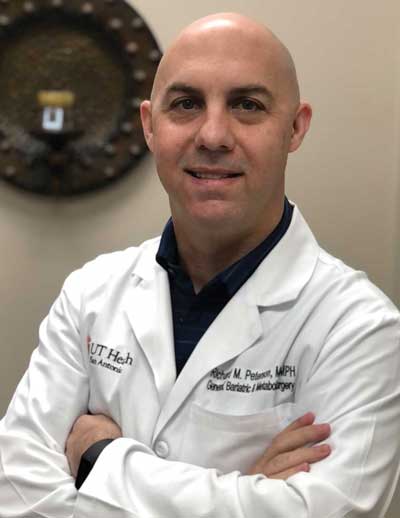Advocacy and Where to Start

Richard M. Peterson, MD, MPH, FACS, FASMBS, is the Co-clinical Editor of Bariatric Times; Professor of Surgery, UT Health San Antonio; Chief, Bariatric and Metabolic Surgery UT Health San Antonio; Director, Christus Weight Loss Institute – Westover Hills, San Antonio, Texas.
Dear Colleagues,
It can be completely overwhelming to try to figure out where to start when it comes to advocacy in the world of obesity treatment. I’d say that my experience has felt a lot more like luck, in the sense that I have been in the right place at the right time with people who were far more involved in the nuances of getting themselves heard. Having spent the majority of my post-training surgical career in Texas, it was my involvement in my state chapter that began that “being in the right place at the right time” path of learning how to be a better advocate. I remember being assigned to the American Society for Metabolic and Bariatric Surgery (ASMBS) Access to Care committee as our state’s State Access to Care Representative (STAR), logging onto the monthly committee calls, and feeling like I turned on a channel on the radio that was in a completely different language. It took a few calls before I felt comfortable understanding some of the jargon that was used to work in this arena. Somewhere not too long after, I was invited by the president of our state chapter to go on a trip to Washington, DC to begin some of our advocacy work in person. That was the first time I had ever been involved in something like that. We did meet with some of the staff liaisons of our Texas representatives, and that was in and of itself a learning experience to realize the buffer that was there between the constituent and the representative. Unfortunately, we didn’t see much movement from that trip, as it was, at the time, when no hands were being shaken across the aisle as “Obamacare” was rolled out. The ASMBS helped guide our efforts with Christopher Gallagher, the now current Obesity Care Continuum (OCC) Washington Representative, helping us make appointments and connections on the hill. Our next step from the state level was to work alongside some of the lobbyists as we went to the state capital two years later. Another learning experience in state level politics was upon me. I kept trying to think back to my high school days of class work about the branches of government and how it all works. I’ll even admit that I remember my Saturday morning cartoons of elementary school, and I’m sure I’m showing my age as I recalled the happy tune of Schoolhouse Rock’s “I’m just a Bill” (feel free to look it up on YouTube) to help me understand it in part.
But that seems to just be a part of the problem. Where do I start? What do I do when I get there? What does that jargon mean? Who can I/should I talk to? The ASMBS has some resources available to their members in the way of toolkits on the website (https://asmbs.org/resources/ehb-access-toolkit). Personally, I found it helpful to jump in feet first and have those with more knowledge and experience help guide me along the way. Becoming a member of a committee that was committed to this was a tremendous learning experience for me. As surgeons, we all had our share of “drinking from a fire hydrant” experiences, and this was one of those for me as well. The most important part of it, though, is to not give up and not feel overwhelmed. We need advocates, and so do our patients. There are many more individuals who have much more knowledge in this area than I do, and engaging our Access to Care Committee members and leaders is a wonderful place to start.
Sincerely,
Rich Peterson, MD, MPH, FACS, FASMBS
Category: Editorial Message, Past Articles



